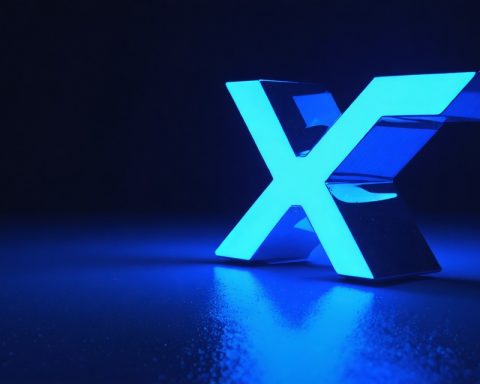- CATL and BYD lead global electric vehicle battery production, marking significant growth in the industry.
- January saw 64.3 gigawatt-hours of EV batteries, a 25.7% increase from the previous year, reflecting the rapid shift towards sustainable transport.
- CATL dominates with a 38.9% market share, supplying major brands like Tesla and BMW, highlighting its strategic and innovative leadership.
- BYD holds a 16.9% market share, with a notable 42.6% increase in installations, emphasizing its strength in affordability and innovation.
- LG Energy Solution, SK On, and Samsung SDI remain significant players, but Chinese companies CATL and BYD are the clear frontrunners.
- The evolving market dynamics underscore the importance of innovation, partnerships, and strategic foresight for future leaders in the EV battery industry.
- The competition is intensifying, with global stakeholders challenged to adapt and innovate to join the leaders in powering electric dreams.
Glancing across the global landscape of electric vehicle battery production, the dominance of two Chinese giants, CATL and BYD, is unmistakable. These behemoths are not merely pacing the battlegrounds of innovation; they are unquestionably leading it.
As the dawn breaks on January’s performance numbers, the figures sing of colossal growth: a gargantuan 64.3 gigawatt-hours of electric vehicle batteries surged into the market, marking a 25.7% lift over last year. This surge is not just a statistic—it’s a statement, an affirmation of humanity’s accelerating march toward sustainable transport.
CATL stands as the sentinel at the forefront of this revolution, weaving its power solutions into the very fabric of the EV industry with a staggering 38.9% of the market share. Its trajectory, a blend of strategic foresight and relentless innovation, sees it supplying battery systems to not just local luminaries like Zeekr and Li Auto, but to global titans such as Tesla and BMW. This striking partnership web echoes the versatility and trust CATL commands in the industry.
Yet, the tale doesn’t end with CATL. BYD, with its magnetic blend of affordability and innovation, trails closely with 16.9% of the share. The rise to this position has been meteoric, evidenced by a 42.6% increase in installations from last January. By weaving their own tapestry of batteries and electric vehicles, BYD fortifies its presence both at home and abroad, enticing a plethora of consumers with best-in-class price performance.
The dynamic between these two pioneers is not a battle, but a carefully choreographed dance—a dance watched keenly by industry spectators like LG Energy Solution and Panasonic, both players of significant repute, yet somewhat overshadowed under the expansive wings of these Chinese powerhouses.
Indeed, while South Korea’s LG Energy Solution maintains a practical hold with a 9.3% share, and SK On and Samsung SDI continue to assert their presence, it’s the captivating leadership displayed by Chinese companies that tells the most compelling story.
More than numbers, these developments serve as a clarion call to action for global stakeholders: to step back, strategize, and perhaps take a leaf or two from the winning playbooks of CATL and BYD. The undeniable takeaway here? The future of energy in motion is being steered by those willing to push the boundaries, to forge partnerships, and, above all, to innovate with unyielding resolve.
As we gaze toward a more electrified tomorrow, the question remains: who will rise next to power the world’s electric dreams, and just what will it take to challenge these reigning kings? The race is on, and it has never been more electrically charged.
Why Chinese Giants CATL and BYD Are Leading the Global EV Battery Race
The global market for electric vehicle (EV) batteries has observed a transformative growth, largely spurred by the revolutionary advancements of two Chinese juggernauts, CATL and BYD. These companies are not merely participants in the industry; they are pioneers setting the pace for innovation and adoption worldwide.
Insights into CATL’s Dominance
CATL, or Contemporary Amperex Technology Co. Limited, holds an impressive 38.9% of the market share. This is no small feat, considering the highly competitive nature of the EV battery industry. Several factors contribute to CATL’s preeminence:
– Strategic Partnerships: CATL’s client roster includes industry heavyweights like Tesla and BMW, showcasing its ability to deliver high-performance battery solutions that meet diverse automotive demands.
– Innovative R&D: With substantial investments in research and development, CATL continually pushes the boundaries of battery technology, seeking higher energy densities and faster charging times.
– Global Footprint: Beyond China, CATL has established its presence in Europe and aims to set up manufacturing facilities in North America, enhancing its global supply capabilities.
The Ascendancy of BYD
BYD, standing for “Build Your Dreams,” commands a 16.9% share of the EV battery market. BYD’s strategy involves a vertical integration model, where they produce both batteries and electric vehicles—a synergy that allows them to react nimbly to market trends.
– Affordable Innovation: BYD has gained a reputation for offering high-quality batteries at affordable prices, which is particularly appealing in price-sensitive markets.
– Diverse Product Range: Their product lineup spans from passenger vehicles to commercial transport, allowing them to tap into multiple revenue streams and market segments.
Comparisons with Global Competitors
While CATL and BYD lead the charge, South Korean companies such as LG Energy Solution, SK On, and Samsung SDI also play significant roles in the market. LG Energy Solution commands a respectable 9.3% share, aiming to expand its influence through strategic alliances and technological upgrades.
Market Trends and Future Forecasts
Looking ahead, the global EV battery industry is expected to continue its growth trajectory, driven by:
– Sustainability Initiatives: With governments worldwide setting ambitious electrification targets, the demand for EV batteries is set to soar.
– Technological Advancements: Breakthroughs in solid-state batteries could further boost efficiency, safety, and energy storage capacity, ushering in a new generation of electric vehicles.
– Competitive Innovations: As competition heats up, companies will likely introduce more innovative battery technologies, leading to lower costs and higher adoption rates.
Actionable Recommendations
1. Invest in R&D: Companies should prioritize research and development to remain at the forefront of innovation and meet future energy demands.
2. Form Strategic Alliances: Aligning with key automakers can provide valuable insights and opportunities for growth.
3. Explore Vertical Integration: Following BYD’s model can provide companies with greater control over supply chains and cost efficiencies.
4. Expand Market Reach: Establishing manufacturing bases in different regions can help cater to local markets more effectively.
For those interested in exploring more about innovations in battery technology, the formidable influence of CATL and BYD, or acquiring EV-related solutions, visit the official sites of CATL and BYD.
As the electrification wave gathers momentum, the companies willing to adapt and innovate will be best positioned to lead in this rapidly evolving landscape.













